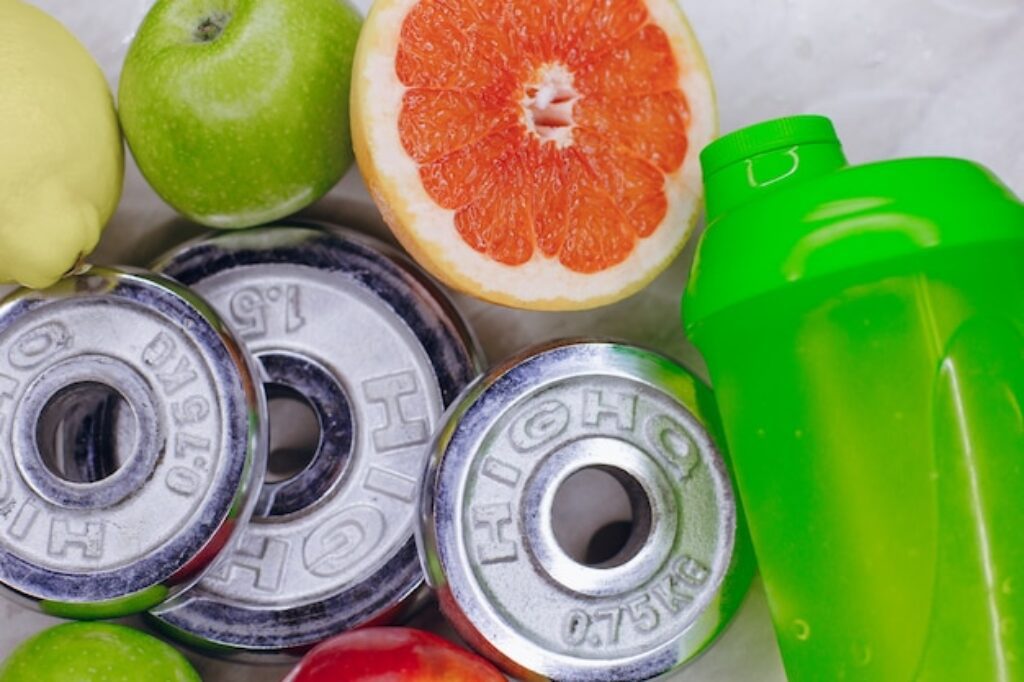Introduction to Fitness Myths
As a fitness enthusiast, I’ve heard it all – the good, the bad, and the outright absurd. There’s a myriad of fitness myths and misconceptions surrounding it, and it’s high time we debunk these fallacies. In this article, I’m going to expose the top 10 fitness myths that you’ve probably heard, believed, or even practiced.
These myths not only lead to misguided fitness routines but can also result in injuries, unhealthy practices, and disappointment. A proper understanding of fitness is crucial to achieving your goals. So, let’s get started on unraveling the truth behind these fitness myths.
Understanding Fitness: The Basics
Before diving into the myths, it’s essential to understand what fitness truly entails. Fitness is a state of health and well-being that allows us to perform aspects of sports, occupations, and daily activities. It involves the balance of physical, mental, and nutritional health.
Contrary to popular belief, fitness is not solely about the hours spent at the gym or the sweat broken during a workout. It’s about the quality of your exercise, your diet, your mental health, and your overall lifestyle. With this in mind, let’s delve into the common fitness myths that have been circulating around.
Fitness Myth 1: No Pain, No Gain
The first myth on our list is the infamous “No pain, no gain” mantra. While discomfort during exercise is common, extreme pain is not. Pushing your body beyond its limits can lead to injuries, muscle strain, and even permanent damage.
Exercise should challenge your body but not harm it. It’s crucial to listen to your body’s signals and know the difference between muscle tension and pain. Pain is your body’s way of telling you that something is wrong, and ignoring it can lead to severe consequences.
Fitness Myth 2: More Sweating Equals More Fat Loss
This is one of the most common fitness myths out there. Sweating is your body’s way of cooling down, not an indicator of fat loss. While it’s true that intense workouts may lead to more sweating, losing water weight is not the same as burning fat.
Your body burns calories to produce sweat, but this doesn’t necessarily equate to fat loss. It’s essential to stay hydrated and replace the fluids lost during workouts to maintain balance and avoid dehydration.
“Fitness is a journey of self-discovery, not a race against misconceptions. Debunking fitness myths is the first step towards embracing a healthier, happier you. Remember, it’s consistency over intensity, progress over perfection.”
Fitness Myth 3: Weight Lifting Makes Women Bulky
For many women, the idea of lifting weights is synonymous with becoming bulky. This is another widespread myth that needs debunking. The reality is that women naturally have less testosterone than men, making it incredibly hard to build large muscles.
In fact, weight lifting can help women achieve a toned physique and promotes fat loss. It also helps in improving bone density, which can prevent osteoporosis later in life. So ladies, don’t be afraid to lift!
Fitness Myth 4: You can Target Weight Loss in Specific Areas
The myth of spot reduction is another fitness fallacy that has been around for a while. The truth is you cannot target weight loss in specific areas of your body. When you lose weight, you lose it throughout your body, not just in one area.
Your genetics determine where fat is stored and where it will be lost first. Therefore, focusing on whole-body fitness is a much more effective approach than trying to target specific areas.
Fitness Myth 5: More Gym Time Means More Fitness
The notion that spending more time in the gym equals more fitness is not only misleading but also potentially harmful. Overtraining can lead to injuries, decreased immunity, and even hinder your progress.
Quality trumps quantity when it comes to workouts. A shorter, more intense workout can be just as effective, if not more so, than a long, low-intensity one. It’s about working smarter, not harder.
Fitness Myth 6: Stretching Before Exercise Prevents Injuries
While stretching is an essential part of fitness, the belief that it prevents injuries is a myth. Research has found that stretching before exercise does not significantly reduce the risk of injury.
However, it’s important to note that this doesn’t mean you should skip stretching altogether. Stretching improves flexibility, increases circulation, and can help improve your performance. It’s just best performed after a workout when your muscles are warm.

Fitness Myth 7: Carbs are the Enemy
Carbs have been unfairly villainized in the fitness world. Contrary to popular belief, carbs are not the enemy. They are a primary source of energy, and a balanced diet should include a healthy amount of carbs.
The key is to choose complex carbs like whole grains, fruits, and vegetables, which provide sustained energy and keep you feeling full longer. Avoiding carbs altogether can lead to fatigue, nutrient deficiencies, and other health issues.
Fitness Myth 8: You Need to Detox Your Body with Juice Cleanses
The idea that you need to detox your body with juice cleanses is another myth that’s gained popularity in recent years. The truth is our bodies naturally detoxify themselves through the liver and kidneys.
While consuming more fruits and vegetables is always a good idea, relying solely on juices for nutrition can lead to nutrient deficiencies. It’s better to maintain a balanced diet and drink plenty of water to support your body’s natural detoxification process.
Fitness Myth 9: All Calories are Created Equal
The belief that all calories are created equal is another fitness myth that needs debunking. While it’s true that a calorie is a measure of energy, the source of the calorie matters.
Calories from nutrient-dense foods like fruits, vegetables, and lean proteins provide more health benefits than empty calories from processed foods. So focus on the quality of your calories, not just the quantity.
Fitness Myth 10: You Can’t Work out When You’re Sick
The final myth on our list is the belief that you can’t work out when you’re sick. The truth is, it depends on your symptoms. If you have a mild cold, light exercise may actually boost your immune system and help you feel better.
However, if you have a fever, body aches, or other severe symptoms, it’s best to rest and allow your body to recover. Always listen to your body and consult with a healthcare professional if you’re unsure.
Busting the Myths: The Science Behind Fitness
Having debunked these common fitness myths, it’s clear that understanding the science behind fitness is crucial. Fitness is a journey, not a destination, and it’s about more than just physical exercise. It involves nutrition, mental health, and a balanced lifestyle.
Remember, there’s no one-size-fits-all approach to fitness. What works for someone else may not work for you. It’s crucial to find a routine that suits your individual needs and goals. And most importantly, always listen to your body.
Mastering the Basics: A Comprehensive Guide to Muscle Building for Beginners
Conclusion: The Truth About Fitness
In conclusion, fitness is a multifaceted concept that involves more than just hitting the gym and breaking a sweat. It’s about adopting a healthy lifestyle that incorporates balanced nutrition, regular physical activity, and mental well-being.
Busting these fitness myths can help us avoid misinformation and adopt a more informed approach to fitness. After all, knowledge is power, and in the realm of fitness, it’s the power to make healthier choices, avoid injuries, and achieve our goals.
Now that you’re equipped with the truth, it’s time to bid farewell to these fitness myths and embrace the reality of fitness. Here’s to a healthier, fitter you!
Unlock Your Mental Wellbeing: 10 Essential Tips for Improving Mental Health!
The Science Behind Muscle Recovery: Effective Strategies for Post-Workout Healing





